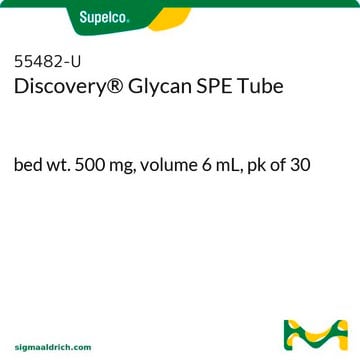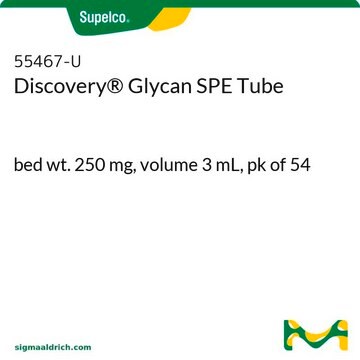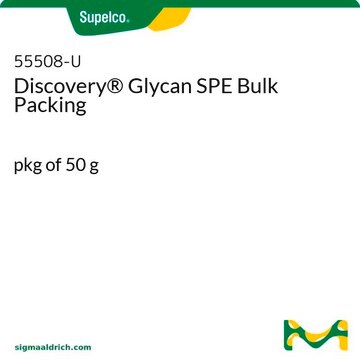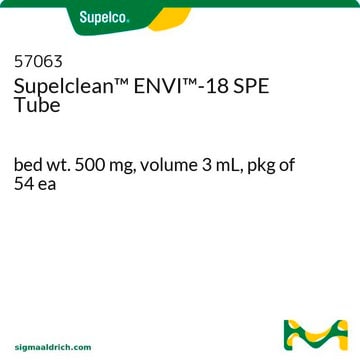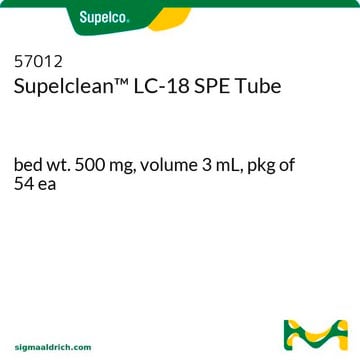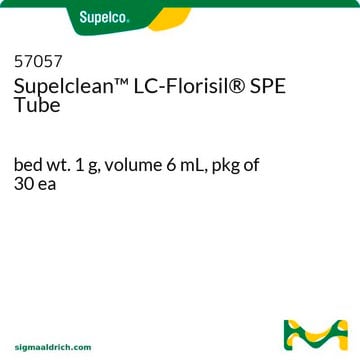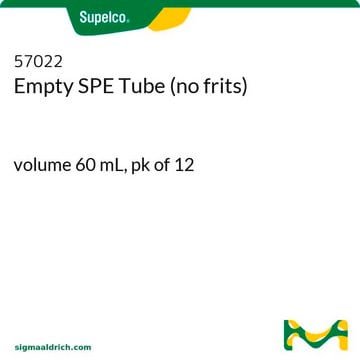55505-U
Discovery® Glycan SPE Tube
5 g, volume 60 mL, pk of 16
About This Item
Recommended Products
material
PE frit
polypropylene
Quality Level
composition
, 5 g
packaging
pk of 16
technique(s)
solid phase extraction (SPE): suitable
volume
60 mL
impurities
<5% Water content
matrix
polyamide resin base material
matrix active group
amide, poly- phase
particle size
50-160 μm
pH range
4.5-7.5(surface pH)
bulk density
0.2‑0.3 g/mL
separation technique
reversed phase
Looking for similar products? Visit Product Comparison Guide
General description
Sample Matrix Compatibility: Aqueous or methanolic solutions
- Polyamide Resin: Particle Size: 50-160 μm, Surf pH: 4.5-7.5, Density: 0.2-0.3 cm3/g, Water Content: < 5 %
- Useful for extracting gylcans from aqueous solutions.
- Used to adsorb polar compounds (-OH groups, esp. phenolic compounds) from aqueous or methanolic solutions under the reversed-phase mechanism through strong hydrogen bonding between compound hydroxyl groups and amide groups of the resin
- Also may be used for the extraction of tannins, chlorophyll, humic acid, pharmacologically active terpenoids, flavanoids, gallic acid, catechol A, protocatechuic acid, phloroglucinol, aromatic carboxylic acids, and nitroaromatic compounds
- Irreversibly retains quinones.
Legal Information
Storage Class Code
11 - Combustible Solids
WGK
WGK 3
Flash Point(F)
Not applicable
Flash Point(C)
Not applicable
Choose from one of the most recent versions:
Certificates of Analysis (COA)
Don't see the Right Version?
If you require a particular version, you can look up a specific certificate by the Lot or Batch number.
Already Own This Product?
Find documentation for the products that you have recently purchased in the Document Library.
Our team of scientists has experience in all areas of research including Life Science, Material Science, Chemical Synthesis, Chromatography, Analytical and many others.
Contact Technical Service